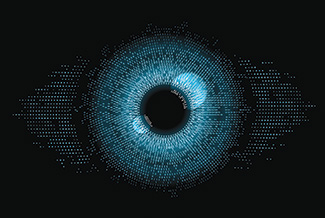Top NLRB official targets ‘bossware’ to curb firms’ electronic spying on workers

Washington (PAI) — It’s called “bossware,” and the National Labor Relations Board’s top enforcement official wants to clamp down hard on corporate chieftains’ use of it.
That’s what General Counsel Jennifer Abruzzo told NLRB regional offices in a recent memo. And she wants the board itself to take an active role against bossware, too, within current Labor law.
“Bossware” has grown astronomically within the last several years. It refers to company-installed monitoring of workers’ every moment and every movement on the job. It’s often done through spyware installed on company-provided computers. And Amazon’s truckers are subject to it through dashboard surveillance cameras.
ALSO MONITORS WORKERS’ SOCIAL MEDIA
But bosses have gone beyond cameras and computers. They also use “bossware” to monitor workers’ social media on and off the job, and to check out, through surveillance, job applicants, weeding out potential employees who might speak up for themselves.
And since speaking up for themselves, and organizing to do so, is exactly what the National Labor Relations Act is supposed to protect — and the NLRB is supposed to enforce — Abruzzo is stepping in. She also wants the board itself get involved in the issue by “applying settled Labor-law principles in new ways.”
ILLEGALLY SPYING ON WORKERS
“I will urge the board to find an employer has presumptively violated” Labor law “where the employer’s surveillance and management practices, viewed as a whole, would tend to interfere with or prevent a reasonable employee from engaging in activity protected by the Act,” Abruzzo’s memo said. “As a whole” includes using bossware to illegally spy on workers.
Even if bosses can prove its spying is “narrowly tailored to address a legitimate business need…I will urge the board to balance the respective interests of the employer and the employees to determine whether the act permits the employer’s practices,” added Abruzzo. Only in “special circumstances” —
which bosses must prove — can they keep spying secret.
Otherwise, bosses must tell workers that they’re electronically spying, why and how and what the bosses do with the information about workers they gather. “Only with that information can employees intelligently exercise their rights and take appropriate measures to protect the confidentiality of their protected activity if they so choose,” Abruzzo explained.
‘OMNIPRESENT SURVEILLANCE’
Abruzzo cited “omnipresent surveillance” of workers, as well as use of computerized algorithms to monitor and evaluate their conduct — conduct which includes the workers “exercise of their (Labor law) Section 7 rights” to unionize, which the law is supposed to protect.
As might be expected, Amazon is a big electronic spy on its workers, says the Electronic Privacy Information Center, a non-profit which has tackled the issue for years.
In 2021, EPIC said, Amazon installed high-tech video cameras in its last-mile delivery vehicles “to reduce collisions and monitor drivers’ mistakes.” It did so before that with its long-haul drivers, “to watch for signs of fatigue and distracted driving” — or so it justified spying on the two groups.
But bossware is much more intrusive than that, EPIC says.
“Internet monitoring and filtering, E-mail monitoring, instant message monitoring, automatic time tracking, phone monitoring, location monitoring, personality and psychological testing, and keystroke logging” are all part of bossware, it explains.
“Some bossware sends employees’ location information, screenshots of their devices, or emails directly to the employer. There are even bossware services that allow employers to remotely activate employees’ webcams and microphones without their knowledge.”
A Google search using the words “electronic spying on workers” confirms EPIC’s point. The first half-dozen items are ads from firms offering bossware services and platforms.



Leave a Reply